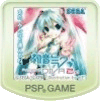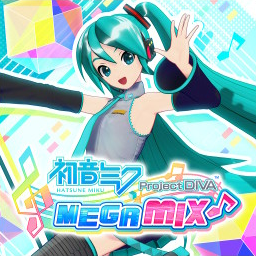
EDITOR'S NOTE:
I'm having no part in this. Bloody Vocaloids. Get back to me when Black Flag reform.

![[Oh, blimey. - Ed]
I see you're not keen on my selection of screenshot. Does this not capture the very aesthetic of the PSP games, though?
[I... Goddamn it. You got me with your big words. I concede but couldn't you have used any other character? One of the Sega references? - Ed]
That wouldn't be nearly as much fun! To be honest I picked this one just to annoy you. You know what the best part is? IT WORKED.
[ONCE AGAIN, I'VE BEEN HAD. - Ed ]](images/megpoidmusic/megpoidmusichakulives.jpg)

![[This is a placeholder picture, right? - Ed]
No! This is the real thing! My copy finally arrived in the post!
[Oh. O-OH.]
It's actually surprisingly good.
[Sure.]](images/konvoca.jpg)

 Hatsune Miku: Project DIVA 2nd (PSP, 2011, Sega / Dingo Inc)  |
 Hatsune Miku: Project DIVA f (PS Vita / PS3, 2012, Sega)  |
 Hatsune Miku: Project DIVA F 2nd (PS Vita / PS3, 2014 Sega)   |
 Hatsune Miku: Project DIVA X (PS Vita, 2016, Sega)  |
 Hatsune Miku: Project DIVA Future Tone (PS4, 2017, Sega AM2) 
|
 Hatsune Miku: Project DIVA Mega Mix (Switch, 2020, Sega / Sega AM2)  |
 Miku Miku Hockey 2.0 (PS Vita, 2014, SmileBoom) Weird App, No Score! |
 Megpoid the Music♯ (PSP, 2013, ParaPhray)  |
 (PSP, 2010, Sega) Based on DIVA's game engine! Coming Soon! |
 Love Live! School idol paradise Vol. 2: BiBi Unit (PS Vita, 2014, Dingo) By DIVA devs!  |
 Miracle Girls Festival (PS Vita, 2015, Sega) Based on DIVA's game engine!  |